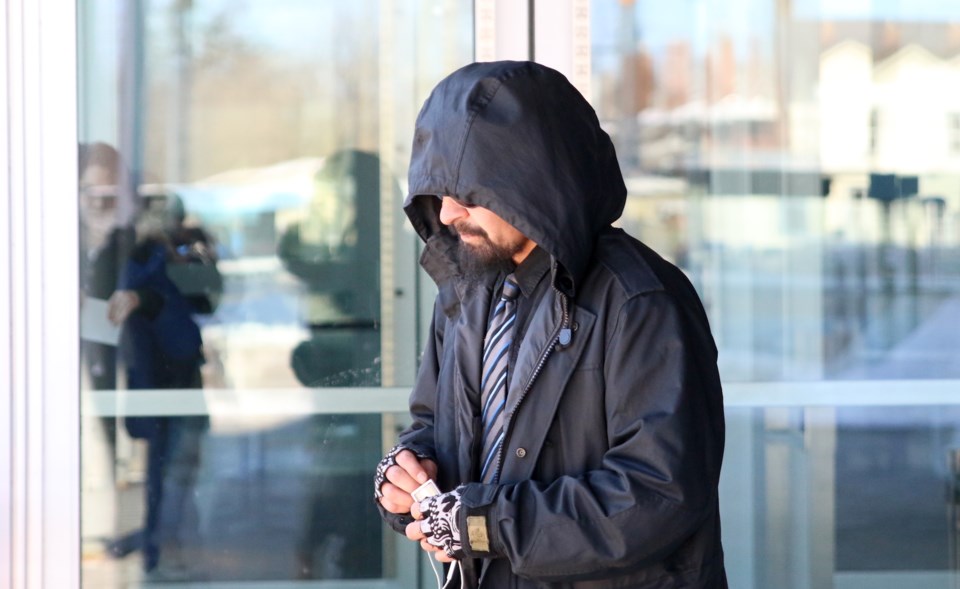THUNDER BAY - A man found guilty of second-degree murder in 2018 has lost an appeal to overturn the conviction.
A jury found Nicholas Necan guilty of second-degree murder in the 2016 beating death of 60-year-old George Gerard.
The verdict followed a trial held in February 2018 where the jury heard evidence that Necan repeatedly assaulted Gerard inside a North Simpson Street apartment the afternoon of Jan. 28, 2016.
Gerard suffered 90 blunt force trauma injuries to his face, head, and neck, as well as numerous defensive injuries to his hands and arms.
Police officers responding to the apartment testified to witnessing Necan beating a prone Gerard and pepper spray had to be used to subdue him.
Necan’s defense counsel was seeking a conviction on the lesser charge of manslaughter, arguing he was too intoxicated to possess the intent to kill Gerard.
Necan testified in his own defense at the trial, telling the jury he had no recollection of the assault.
The jury agreed with the Crown’s argument that the prolonged nature of the assault, which took place on and off over the course of an hour, demonstrated intent and constituted second-degree murder.
Following the verdict, Necan was sentenced by presiding judge Justice John Fregeau to life in prison with a period of parole ineligibility for 13 years.
Necan appealed the second-degree murder conviction, arguing Fregeau erred in his instructions to the jury prior to deliberations.
The four grounds cited in the appeal included Fregeau providing inadequate anti-bias instruction to the jury, providing confusing, inaccurate, insufficient, unclear, and legally incorrect instructions on intoxication, not providing after-the-fact conduct instruction, and failing to provide the jury with a propensity reasoning instruction.
In a written decision released earlier this month, Associate Chief Justice Michal Fairburn with the Court of Appeal for Ontario, along with Justices Jonathan Dawe and Sarah Pepall, dismissed the appeal.
Fairburn said in the decision written on behalf of the panel that none of the grounds for appeal can succeed.
“While there are aspects of the charge that are not a model of clarity, it is my view that the charge got the job done,” Fairburn said.
“To this end, when reviewing jury charges for legal error, appellate courts are not to seek out perfection. Nor are they to ask whether the jury charge under review could have been better. Indeed, as with most things in life, almost every jury charge could be improved upon given the luxury of time and reflection. But that is not the world of jury trials.”
Fairburn added in the decision that the charge to the jury by Fregeau was: “admirably concise, homing in on the actual issues for consideration.”
“The trial judge told the jury that, if after taking into account all of the evidence, including that relating to alcohol consumption, they were not satisfied beyond a reasonable doubt that the appellant had the state of mind for murder, then they had to find him not guilty of second-degree murder and only guilty of manslaughter,” Fairburn said.
“He then told the jury that if they were satisfied beyond a reasonable doubt that the Crown had proven the state of mind for murder, they had to find the appellant guilty of second-degree murder.”





